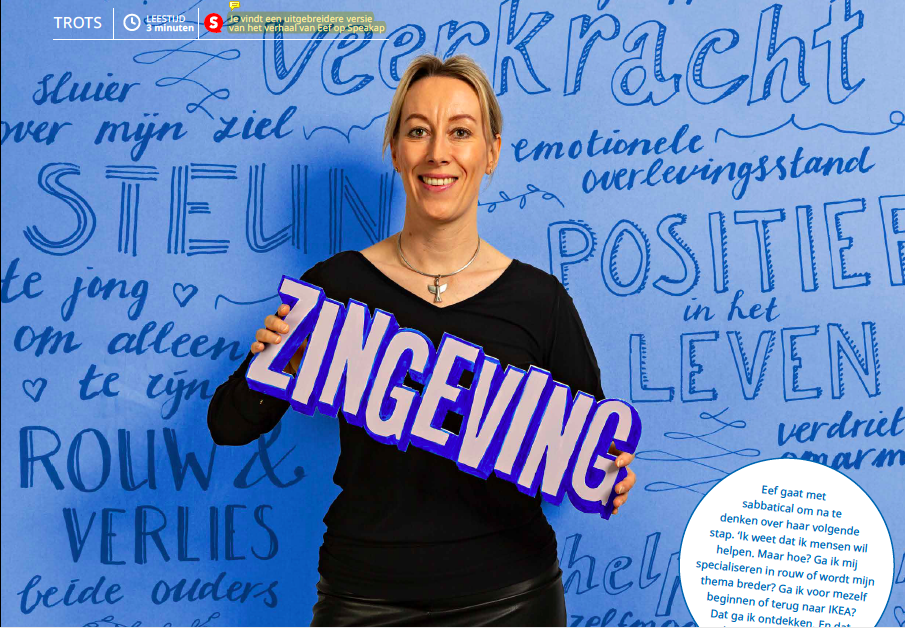Eef Loozen is People & Culture Market Area Manager at IKEA Netherlands, but on January 1 she started her sabbatical. To discover what else she can do to help other people.
When Eef was just 12 years old, her mother died of breast cancer. Five years later, her father suddenly lost three pounds in two weeks. He went to the doctor, who said something had to be removed from his kidneys. When they operated on him, the cancer turned out to have spread everywhere. The very next day he died of internal bleeding.
At that time Eef was 18, it was just before her final exams. ‘With my two older brothers we stayed in our parental home. Too old for a foster family, but actually too young to live alone.’ They received plenty of emotional and practical support, from family and friends on both their father’s and mother’s side. Their mother’s sister supported them emotionally and Eef grew very close to her. Their father’s brother helped them with practical and financial matters.
Aunts on their doorstep
‘Fortunately, we were pretty well taken care of financially. We received an orphan’s pension until we were 21. My oldest brother already received a student grant. The house we lived in only had a small mortgage left. My oldest brother and I also had a job. Aunts and neighbours turned up daily on our doorstep with pans of food. Sometimes we thought: just leave us alone!’
